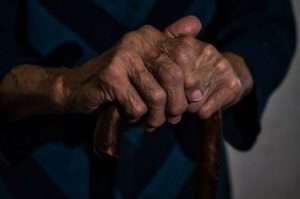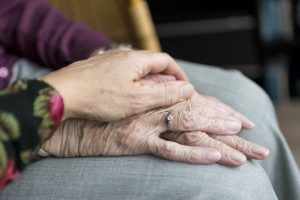 Emotional Abuse in Nursing Homes Is a Massive Problem
Emotional Abuse in Nursing Homes Is a Massive Problem
As a nursing home abuse lawyer, I hear stories of elder abuse every day. It’s a catastrophic problem that affects a huge number of our elders. And it’s completely unacceptable. While we spend a lot of time (understandably) on physical abuse, we shouldn’t forget emotional abuse in nursing homes, too.
Emotional abuse can have permanent, invisible effects. It makes life miserable for our loved ones. And it often points to other abuse, like physical and financial abuse.
So here’s what’s going on, why it’s happening, and what we can do about it.
The Scope of the Problem
According to a 2021 World Health Organization (WHO) report, 64.2% of nursing home staff admitted they committed some form of abuse in the past year.
32% of nursing home staff members said they emotionally abused residents at some point in the year.
And according to the report, rates have only increased during Covid.
 Understaffing Issues
Understaffing Issues
Severe understaffing has impacted facilities all across America. Covid-19 only made the problem worse. However, this excuse doesn’t really hold up for some of the largest nursing home systems.
Nursing care facilities are a $146.9 billion market, and the the U.S. long-term care market brought in $467.3 billion in 2021.
That’s obviously an astronomical amount of money—enough money, it would seem, to hire great staff and pay them well.
We once won a million dollar case where, in deposition, the facility said over and over how understaffed they were. In the end, they had a billion dollars in liquid capital. They could have hired more staff and didn’t. Instead, they chose profit over keeping our loved ones safe.
Emotionally Unequipped
Nursing is an extremely challenging job. It only gets harder when working with elderly patients who struggle with physical and mental limitations. Even when helping our own loved ones, it takes enormous patience and love.
Unfortunately, some staff at these facilities aren’t mentally or emotionally equipped to do the work.
They may be underpaid. They may be overworked. And we should absolutely address those issues. However, nothing excuses abuse: if you can’t manage the challenges without emotionally abusing someone, you’re in the wrong line of work.
 Race and Gender
Race and Gender
Unfortunately, some elder care workers don’t leave their biases at home. Emotional abuse at nursing homes often has a gendered and racial undertone.
One of my clients faced verbal abuse because of her race. This eventually progressed to physical abuse and neglect. She ultimately tried to escape from the facility, and she didn’t survive in the elements.
This is what I mean by emotional abuse leading to other forms of distress. They’re all connected.
A Lack of Accountability
Rates of abuse went up during Covid in part because facilities closed themselves off to family members. It makes sense: they wanted to protect their residents from the virus. But sadly, the decision led to other problems, because family members serve as one of the first lines of defense against emotional abuse in nursing homes.
Staff are much less likely to abuse someone verbally if they know their family members might walk in at any moment. Having someone there to observe everything—someone who actually cares about the patient—makes a huge difference.
 What You Can Do to Stop Emotional Abuse in Nursing Homes
What You Can Do to Stop Emotional Abuse in Nursing Homes
We absolutely should not settle for a world where emotional abuse is this common.
You and your loved one have every right to a peaceful, caring environment. And we fight to make that happen.
Our nursing home abuse firm takes on some of the biggest facilities in the country, and we win. We fight for your loved ones as though they’re our own family. And we don’t get paid a cent unless you do.
What’s more, we hold these companies and their staff accountable so they don’t keep doing this to other families.
We would love to talk with you about your case. To get started, call us today at 901-327-2100 or fill out the form below.
